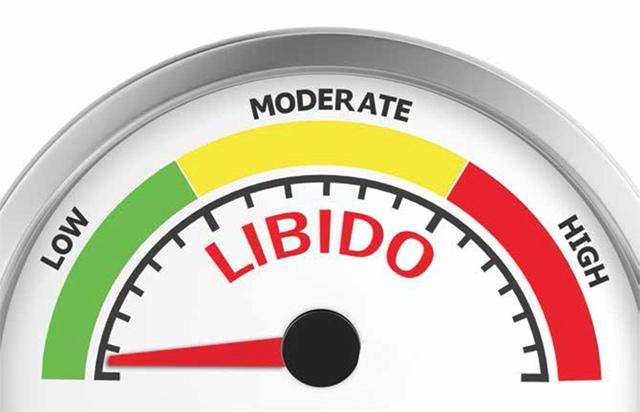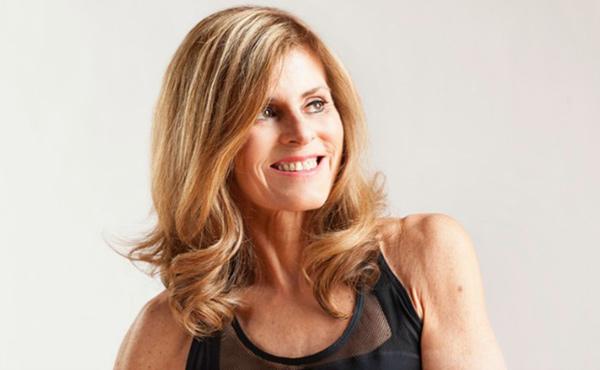You are here
When lust goes bust: addressing low sex drive in women
By Dr Yaman Tal , Family Flavours - Oct 14,2018 - Last updated at Oct 14,2018

Photo courtesy of Family Flavours magazine
Consultant Urological Surgeon and Consultant in Sexual Medicine
Many women excuse their low libido (sex drive) as part of the ageing process or due to changes in their bodies. But when your low libido starts interfering with your quality of life and puts a strain on your relationship, then it is time to seek professional help.
Loss of sexual desire or low libido in women is known medically as hypoactive sexual desire disorder (HSDD). HSDD is not uncommon. In fact, it affects 10 per cent of women. Sexual desire in women is multifaceted and requires a balanced neurohormonal system (there are a number of neurohormones and neurotransmitters that play an important role in regulating female sex behaviour). Compared to men, the emotional and psychological factors for women are often of greater importance for a healthy libido than the physiological factors.
Symptoms associated with HSDD
If you have any of the following symptoms, especially if associated with anxiety, then you may suffer from HSDD:
• Little to no interest in sexual activity
• Few to no sexual thoughts or fantasies
• Disinterest in initiating sex
• Difficulty getting pleasure from sex
• Lack of pleasurable sensations when the genitals are stimulated
Causes of low sexual desire in women
Lack of sleep
I put this first because it is the most ignored cause of low libido, especially for new mothers with a newborn baby or a busy working mother, juggling work, kids and home. For women, more sleep leads to higher levels of sexual desire and better arousal the next day, according to 2015 study published in the Journal of Sexual Medicine. In fact, just one more hour of sleep was linked to a 14 per cent increase in the odds a woman would engage in sexual activity with a partner.
Medications
Many medications can lead to low sexual desire — the most common are selective serotonin reuptake inhibitors (SSRIs), a widely used type of antidepressant medication, and some oral contraceptives. If you are on an SSRI antidepressant and you start suffering from low libido, speak to your psychiatrist to replace it with a non-SSRI antidepressant — my favourite is bupropion because it increases brain dopamine which is an important neurotransmitter for a healthy libido.
Medical diseases
Many health conditions are associated with loss of sexual desire, such as cancer, arthritis, diabetes, neurological disease and heart disease. All these can be associated with reduction in sex drive. HSDD affects 10 per cent of women.
Sexual problems
If you have pain during sex then this may lead to loss of interest in sex. Pain during sex has many causes (vaginal spasm, infection or vaginal dryness). Most of these issues can be treated easily so do not delay speaking to your doctor for advice.
Hormonal problems
Women are more sensitive to hormonal changes than men and hormonal imbalance can lead to loss of libido. The most common hormonal cause of loss of desire is menopause, when the level of testosterone drops. Because testosterone is the main hormone responsible for libido, interest in sex may drop. Plus, due to falling oestrogen levels, vaginal tissue becomes thinner and drier, resulting in painful sex. If a woman undergoes oophorectomy (ovary removal surgery), her levels of both oestrogen and progesterone plunge, resulting in early menopause and the same issues, mentioned above. Treatment in these cases involves testosterone replacement and local oestrogen therapy so you can still enjoy a healthy sex life with your partner.
Relationship issues
For women especially, emotional closeness is essential for healthy sexual intimacy, so if you have relationship issues with your partner such as trust issues, lack of connection, frequent arguments or a history of infidelity, these will impact your sexual desire or lack of interest in engaging in sexual relations with your partner. Thus, communication is essential to mend the relationship. Do not hesitate to ask for advice from a relationship expert.
Psychological causes
Depression, poor body image, low self-esteem, history of sexual abuse and bad previous sexual experiences are all factors that can lead to loss of interest in intimate relations with your partner. As a sexual medicine expert, I find these causes very challenging to deal with, especially if the partners are not cooperating. I recommend a multidisciplinary team to deal with these cases, including psychologist, psychiatrist and a sexual health expert.
Treating HSDD
Science has failed in finding an effective pink Viagra but some progress has been made in recent years.
•Testosterone patches have been approved to treat low desire in women, especially during perimenopause
• Addyi (filbnastrien) was approved two years ago in the United States as the first female libido enhancing pill but, unfortunately, the results in the clinical practice was not very impressive
• Viagra, which is used for male erectile dysfunction, may help certain cases of HSDD as it enhances blood flow to the genital area and improves lubrication and genital engorgement
• Behavioural treatment includes sensate focus which is a series of intimate physical exercises we ask the couple to perform in stages that enhance connection and intimacy. Also, mindfulness is very helpful in treating low libido, especially if it is secondary to psychological factors
Low libido is a significant and common problem not to be ignored. The most important in dealing with this problem is open communication with your partner and seeking professional help when required.
Reprinted with permission from Family Flavours magazine
Related Articles
Women who experience sexual dysfunction after menopause may feel more desire and pleasure when they use testosterone treatments, a recent st
By Yaman TalConsultant Urological Surgeon and Consultant in Sexual MedicineLove is one of the strongest of human emotions but if you think i
Clinical Dietician Some of our poor food choices have the ability to reduce testosterone, diminish sex drive, reduce sensitivity, alter



















